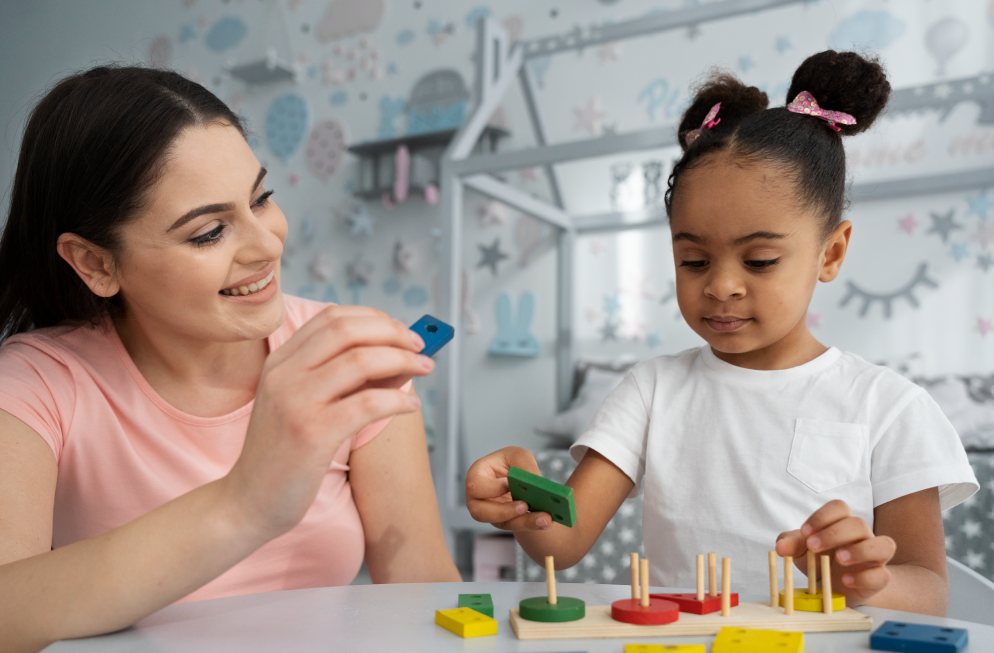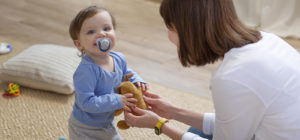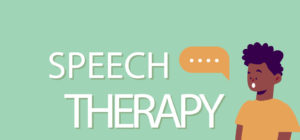Play-based speech therapy is when a speech pathologist (SLP) plans speech and/or language activities around a play toy or activity. The SLP will create opportunities for the child to practice the target skill while enjoying motivating toys and activities that are relevant to the child’s interests.
- Children are motivated to engage and communicate when playing with materials of interest.
- Play-based therapy helps increase attention and build better positive interactions.
- Children learn the social skills necessary for playing with toys and make progress on speech and/or language goals in a naturalistic setting.
- The child will make better connections with real-life events and will improve memory.
Types of Play That Can Be Targeted in Play-Based Speech Therapy
Exploratory:
Using senses of touch, taste, and smell to learn about new objects. If you see a child shaking, dumping, throwing, mouthing, or smell items they are exploring play.
Functional play:
Investigating how common objects work and are used.
Construction play:
Building things with objects.
Game play with rules:
Board games that have a clear set of rules for playing.
Outdoor and movement play:
Activities that involve physical movement.
Symbolic, dramatic, and pretend play:
Common activities are done in everyday life as play.
If you work with younger-aged students, then planning play-based speech therapy sessions can help you save time with lesson plans and increase engagement with students!
You can adapt toys to cover multiple goals, so you can use the toy in many of your sessions. I love utilizing a toy or a pretend play theme for many of my mixed group sessions! Adapting materials sparks joy in this SLP.




